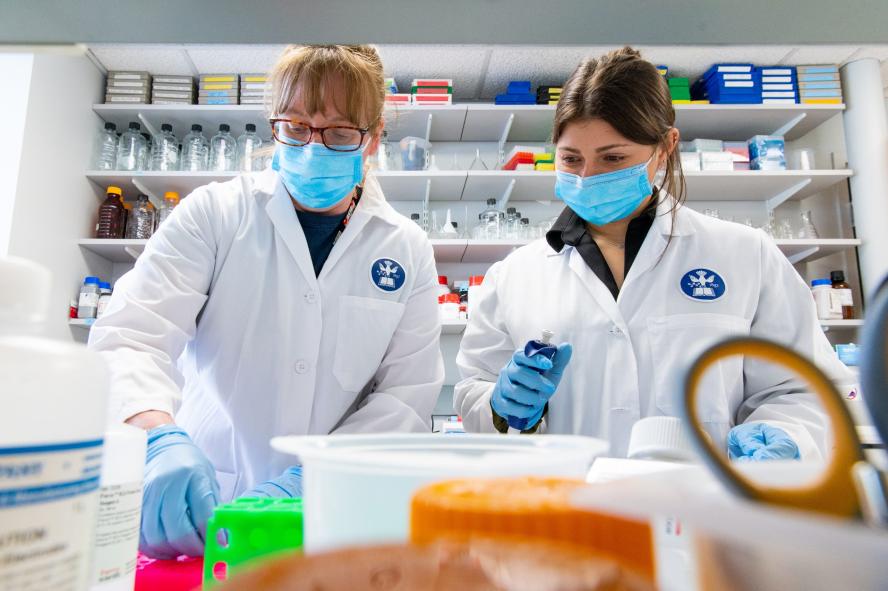-
About
- Leadership & Faculty
- News & Events
-
Admissions
-
Academics
- Graduate
- Advanced Clinical Training
- Continuing Education
- Academic Departments
- Academic Offices
- Simulation Experiences
-
Student Life
- Offices
-
Research
-
- Transformative Research
- Centers & Shared Resources
-
-
Hospitals & Clinics
- Emergency Care
- Hospital Services
-
Community Outreach
- Volunteer
Protecting the Hearts of Canine Cancer Patients
Heart damage has emerged among the distressing side effects of certain chemotherapy drugs

Heart damage has emerged among the distressing side effects of certain chemotherapy drugs. Unfortunately, it remains undetectable until it advances to a typically irreversible state.
Doxorubicin, a chemotherapy drug used frequently in both humans and dogs, is one of the most predictably cardiotoxic. For this reason, oncologists who treat canine patients at Cummings School work closely with veterinary cardiologists when treating a dog with this medication.
“Cancer is still going to affect the dog and shorten its lifespan, but we need to manage the side effects on the heart,” says Cummings School Veterinary Cardiologist Vicky Yang V09, D.V.M., Ph.D., SB, DACVIM.
Working with her oncology colleagues at Cummings School, Yang determined the critical need to identify heart injuries early enough in the course of cancer treatment to halt their progression. Right now, echocardiograms and identifying certain biomarkers via blood tests are the only effective ways to detect heart damage in dogs; damage can manifest as impaired contraction of the heart, arrhythmias, and heart failure.
“By the time we see changes on an echocardiogram, the injuries are irreversible,” says Yang.
Once heart changes are detected, oncologists will determine whether they should stop giving a dog the same chemotherapy drug and explore other treatment options. Unfortunately, however, few alternatives can effectively combat certain cancers. “Then you have to [weigh] which is the worst thing right now—cancer or the heart?” Yang ponders.
Yang’s research, which is currently in the investigational stage, focuses on developing a blood test that can identify a new biomarker—one that appears early enough so measures can be taken to intervene before the damage is done. These might involve adjusting doses of chemotherapy drugs or adding a heart-protective drug during cancer treatment.
Doxorubicin is known to cause the same problems in human cancer patients. “It’s even worse for them because they tend to live longer after cancer treatment, whereas dogs have a shorter lifespan,” Yang explains. “A lot of the changes that happen to dogs also occur faster, so we use our canine patients as a model for humans.”
With this in mind, Yang and her colleagues are collaborating with Tufts Medical Center.
“They’re looking at what’s happening to humans. We’re witnessing what’s happening to the dog, and then a group of scientists are testing some of our ideas on mice,” Yang shares. “It’s a three-team approach, and I think a very exciting, unique part about our program.”